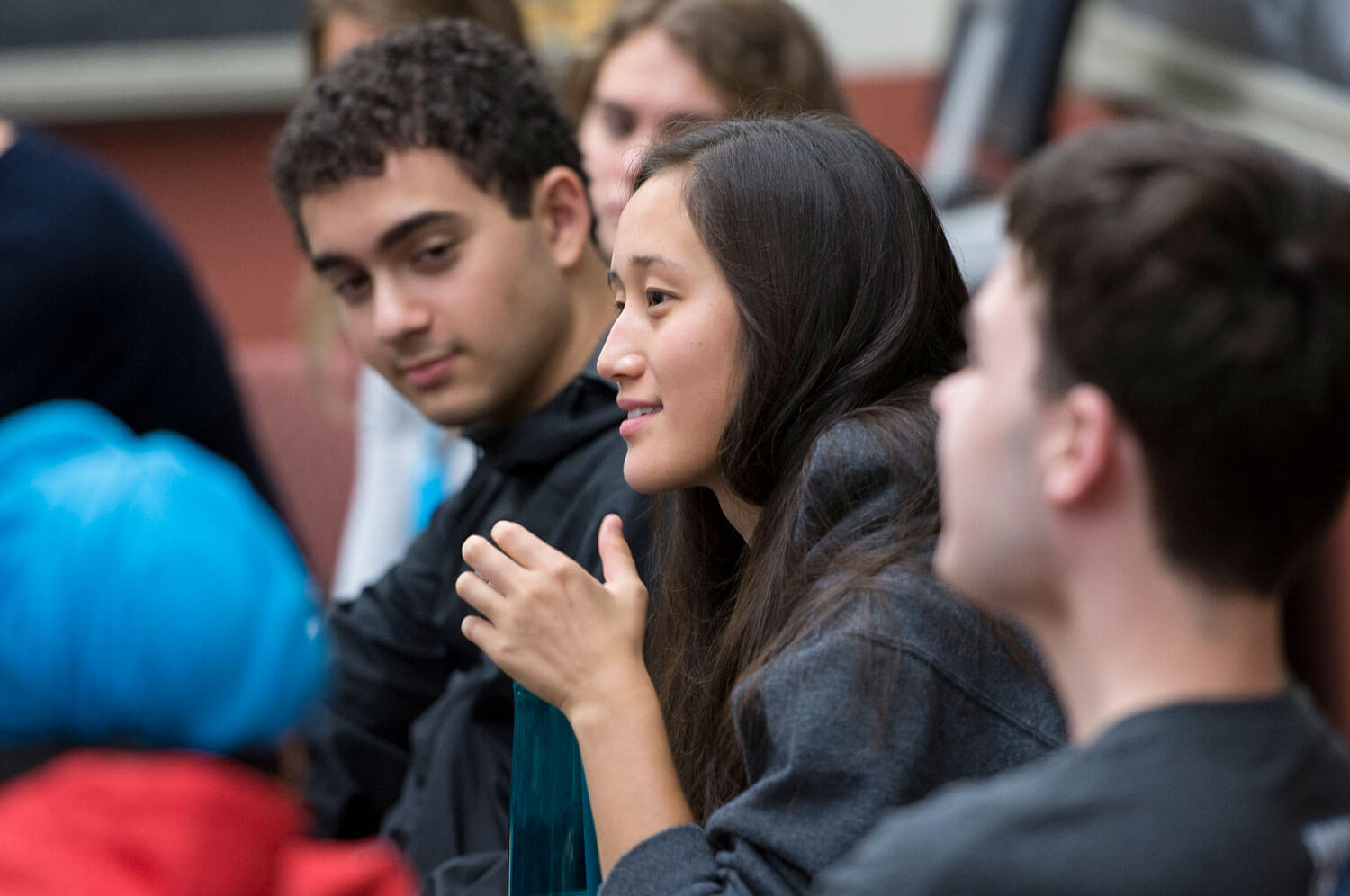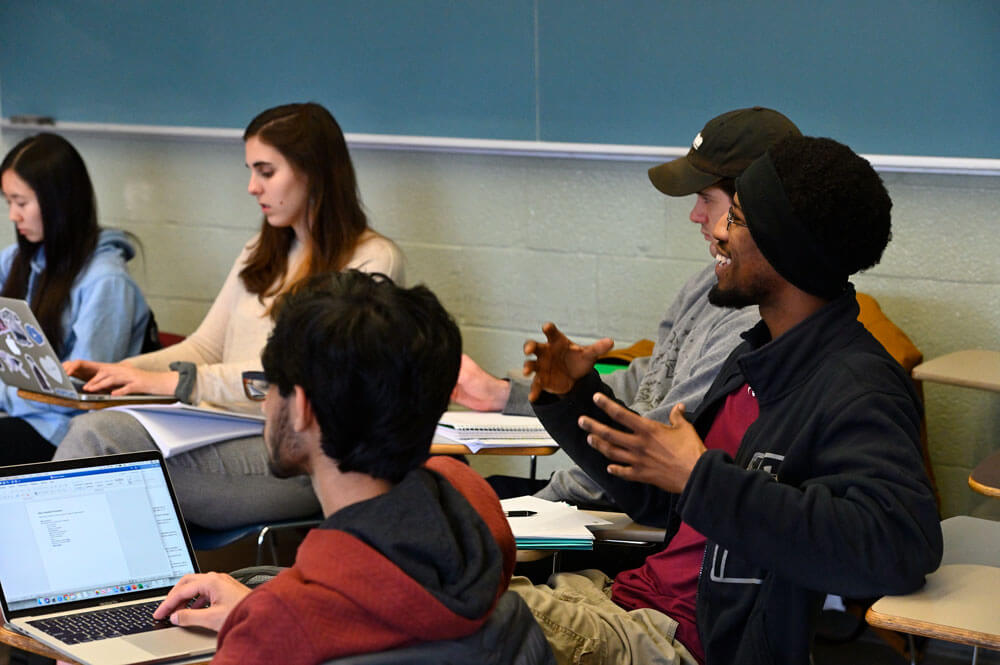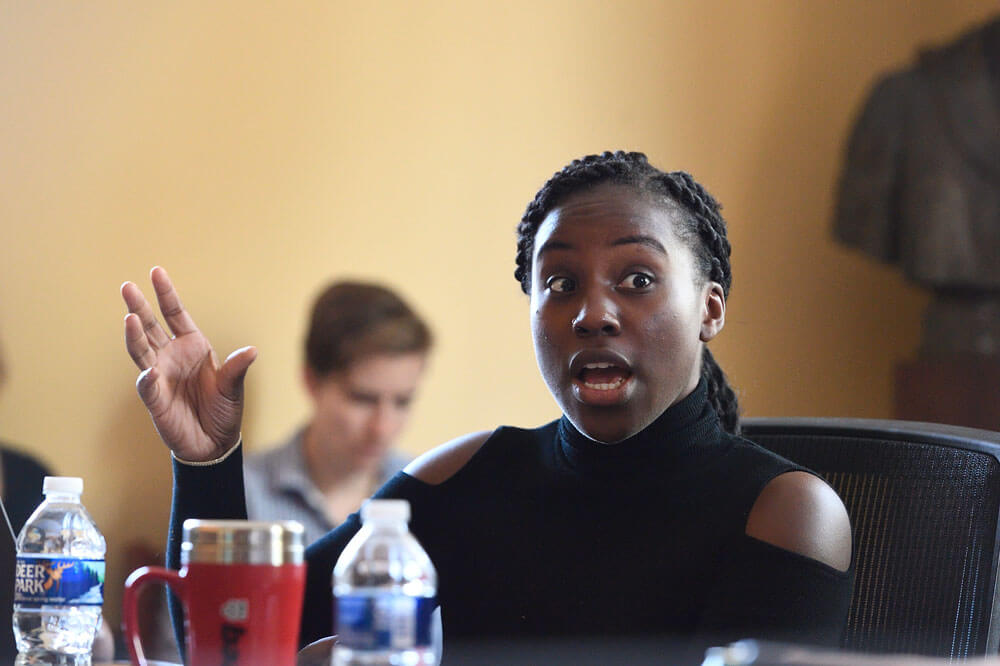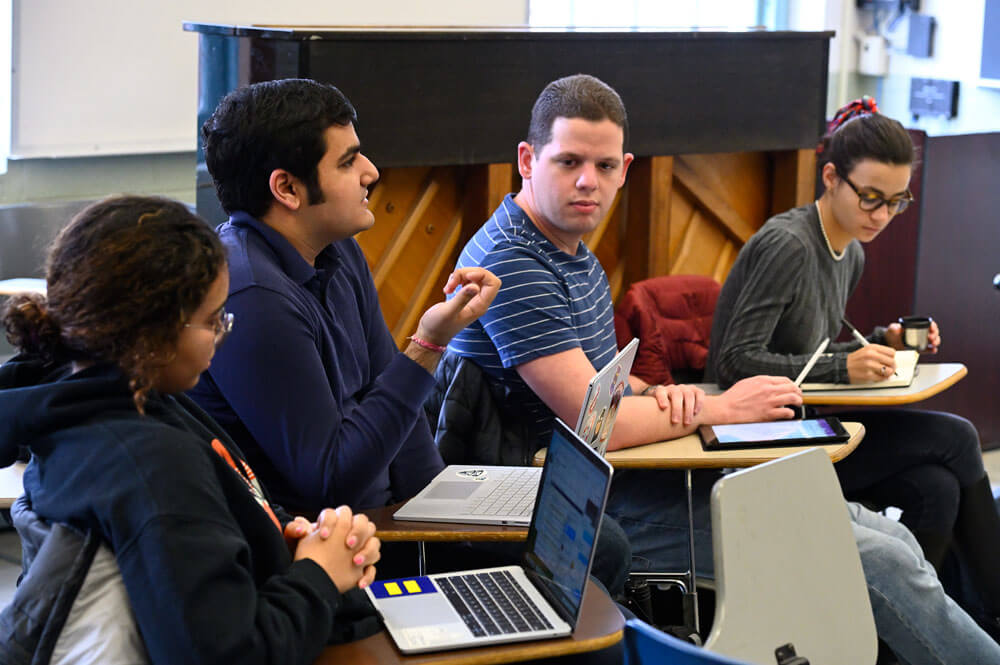International Studies

Using a multi-disciplinary approach to address global issues.
The international studies major draws from several departments across Hopkins so students can use a variety of perspectives to understand international political, economic, historical, and cultural questions from. By learning new languages, studying the history and cultural diversity of societies across the globe, and unpacking the politics and theories of international relations or the dynamics of the world’s economy, you’ll gain the tools required to be competitive in a complex global setting. Plus, you’ll have access to experts and research opportunities at the Aronson Center and School of Advanced International Studies (SAIS), one of the top graduate programs for international relations.
CLASSES YOU MIGHT TAKE

States, Regimes & Contentious Politics
Drawing on a mix of classic works and contemporary scholarship, we introduce you to the study of politics and political life in the world with a particular focus on the Middle East, Latin America, and Africa. Throughout the course, we’ll analyze the sources of order and disorder in modern states, addressing questions like why are some states democracies while others are not? How do people organize to fight oppression? Why does conflict sometimes turn violent? What are the causes of ethnic war?

The Battle of Ideas for the World Economy
This seminar is organized around a series of thematic pairings, covering such political economic themes like free trade vs. protectionism, free market capitalism vs. socialism, democratic erosion vs. autocratic strength, hegemonic stability vs. U.S. abdication of power, or whether the current populist wave has mainly economic or mostly cultural roots. It’ll hone your analytical and writing skills by exposing you to theoretically advanced forms of political economy argument in a “proposition-opposition” format.

Politics of Inequality
This seminar is designed to provide you with a critical overview of the field, both theoretically and empirically. We’ll review the main issues when measuring inequality and examine the political and institutional foundations of income inequality and also its effects on institutional development, political participation, and voting choice.
Secure Your Spot in a Top Graduate School
Explore our Direct Matriculation Program: Master’s in International Relations to lock in your place at the renowned School of Advanced International Studies (SAIS)—right alongside your undergraduate application to Hopkins.
Faculty Spotlight

Join the Club
Hopkins students are eager to pursue their interests outside the classroom. With 450+ student-led organizations, here are just a few you could join:
- Américas: The Johns Hopkins Journal of Latin American Studies
- Foreign Affairs Symposium
- Hopkins College Democrats
- Hopkins Podcast on Foreign Affairs (POFA)
- HopMUN (Model UN)
- College Republicans at Johns Hopkins University
- JHU Debate Council
- Johns Hopkins Undergraduate Law Review
- Sigma Iota Rho (International Studies Honor Society)